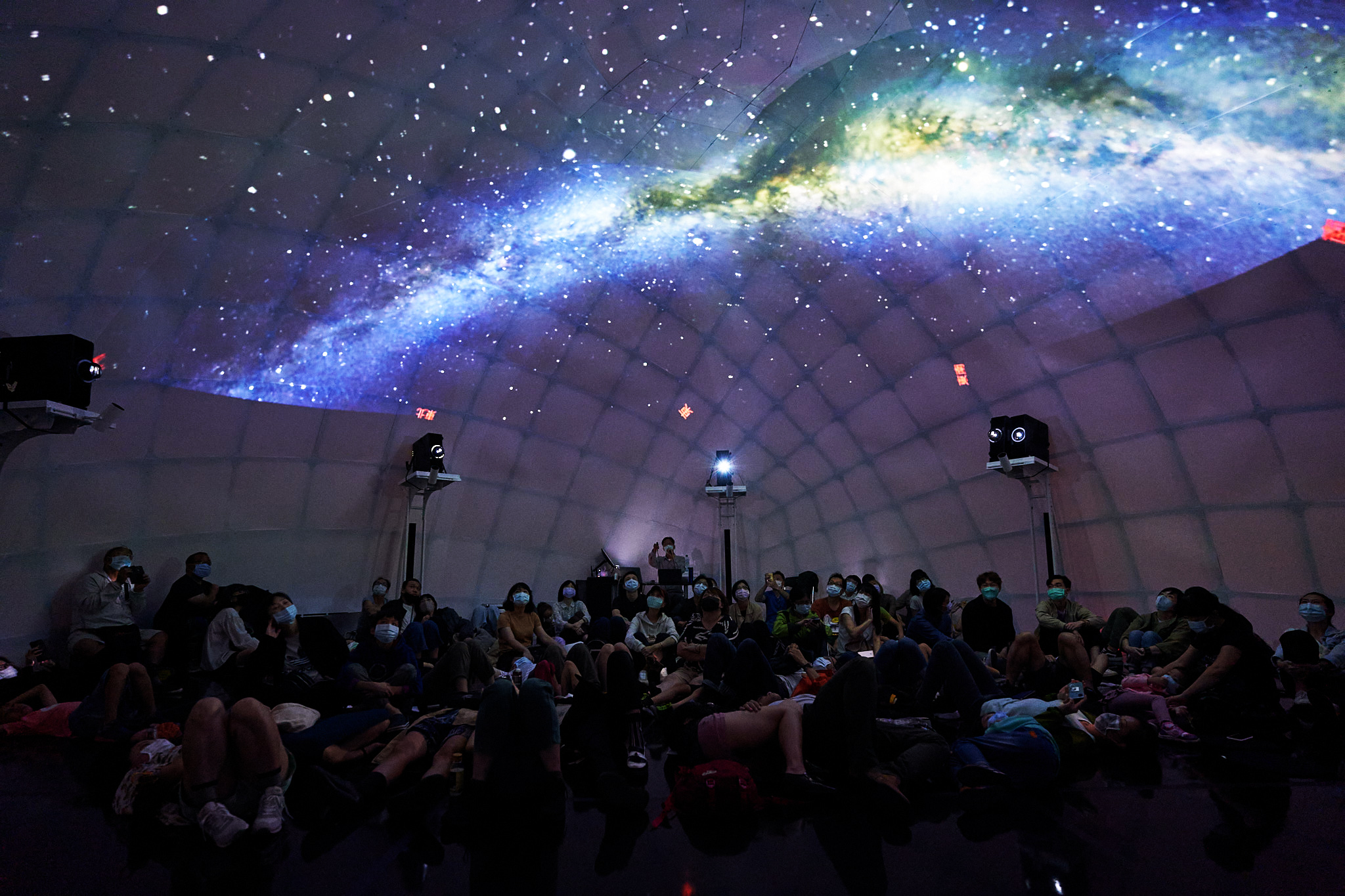Stargazing apps are very useful, providing information about the night sky, such as how to recognize bright stars, constellations, and planets.
With a dome screen and the planetarium software Stellarium, an all-new method of introducing the constellations is created, which breaks through the limitations of time, light pollution, weather, and physical space. Moreover, audiences learn about astronomy from different perspectives, such as culture and popular science. With Stellarium software, it is not necessary to have a telescope to observe the surface of the moon, the large red spot on Jupiter, or the rings of Saturn, or to understand the solar system. In the urban jungle, it is possible to see the Milky Way, to learn about the stars, and to gaze at the starry sky!

Exploring the Starry Night-Stargazing Lecture, 2020.
Lecture|10.31 (SUN) 19:00, 20:00 (2 sessions)
Duration|45 mins
Limited availability, please sign up here.
▶ Limited availability, and registration for each performance is needed.
▶ Latecomers will not be allowed to enter the venue once the performance begins. The performance will not open for audience to sign up on site. Please sign up as early as possible.
▶ For the epidemic prevention, taking temperatures, disinfecting hands, leaving personal information and keeping social distance are required, and audiences are required to wear masks at all times when entering C-LAB. Moreover, audiences whose temperatures are above 37.5℃ are not allowed entry.
▶ Programs may be subject to change.
|The Lecturer
LEE Hsu-Tai
LEE Hsu-Tai earned a doctoral degree in Astronomy and served as a postdoc in Academia Sinica’s Institute of Astronomy and Astrophysics and at the University of Illinois Urbana-Champaign. Now, he is an adjunct professor at National Chung Cheng University and translates National Geographic books and special issues.